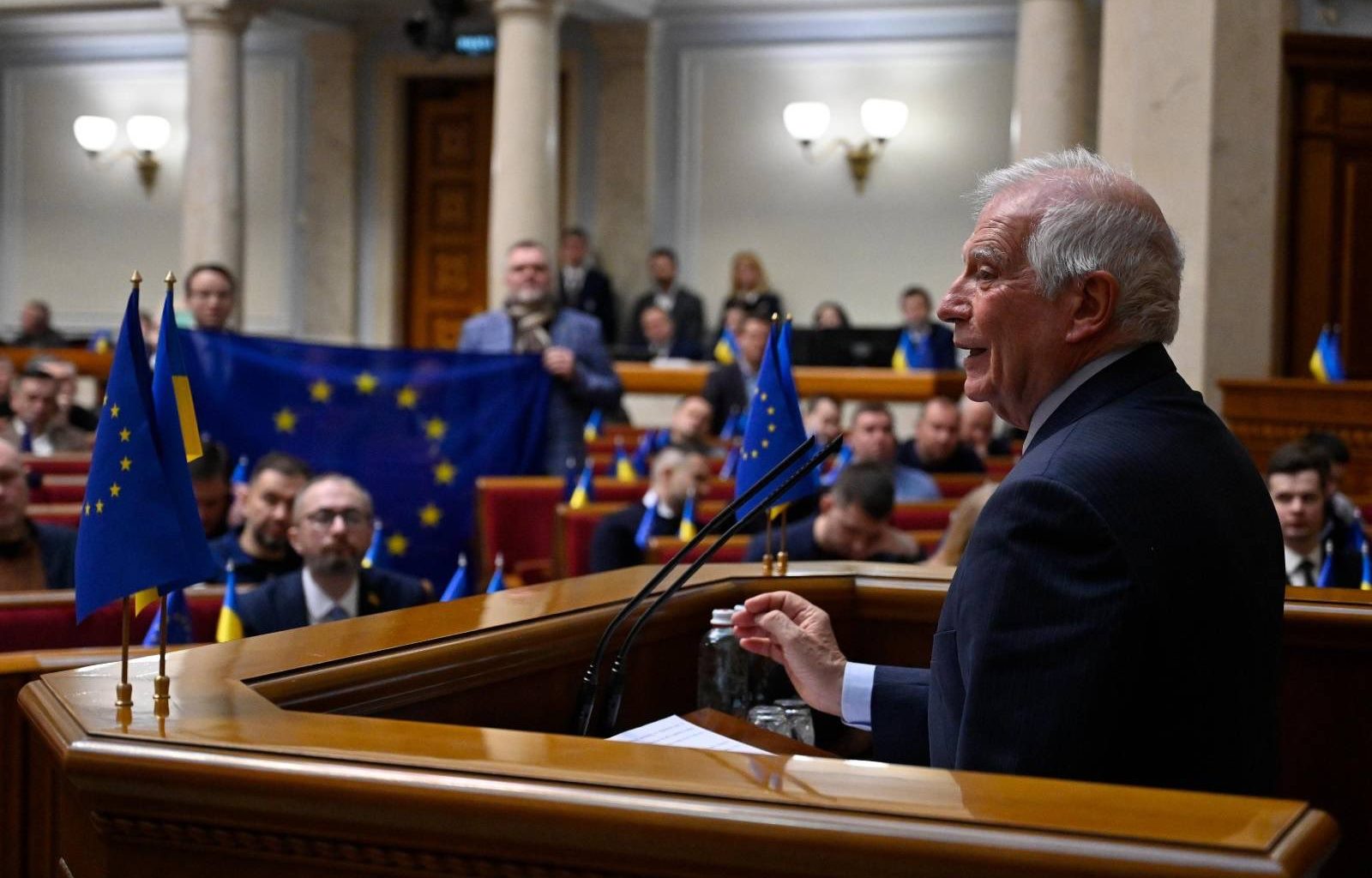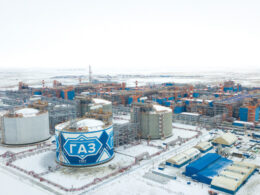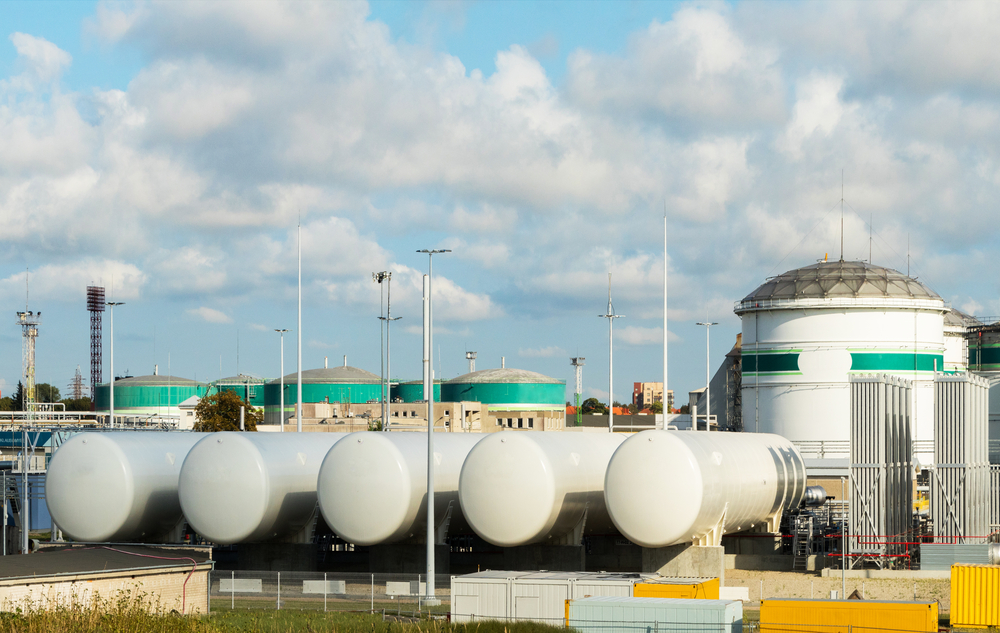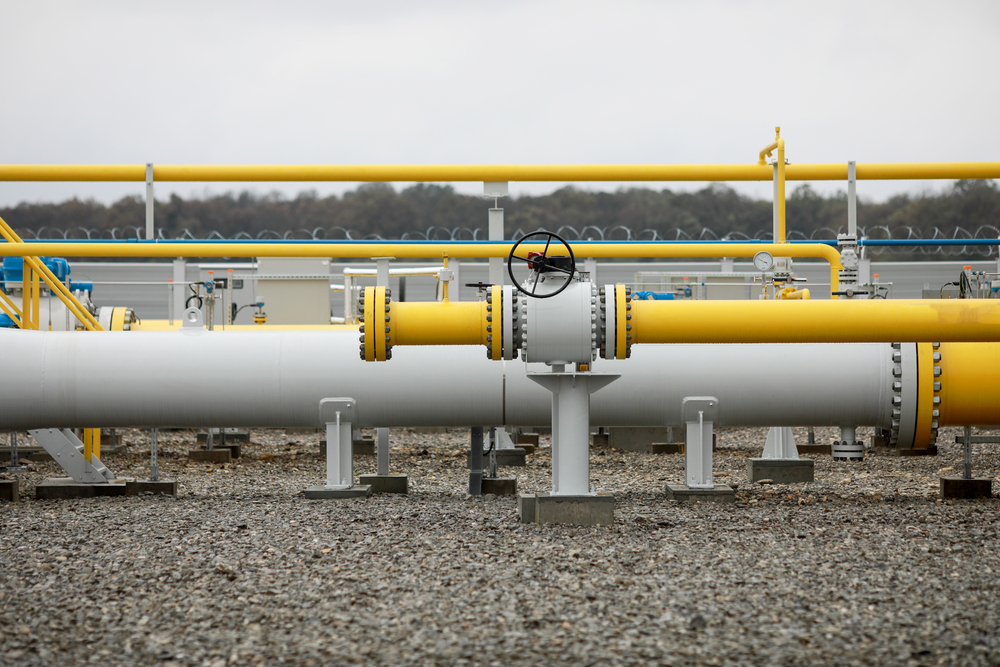On 7 February, the EU High Representative for Foreign Affairs and Security Policy Josep Borrell visited Ukraine for the fourth time since Russia's full-scale invasion.
This time, in addition to non-public events and trips (for example, he visited two drone manufacturing plants), Borrell spoke in the Verkhovna Rada, and his speech can definitely be called a landmark one.
In particular, the head of European diplomacy stated that Europe needs to change its paradigm from supporting Ukraine "for as long as it takes" in favor of a new approach - "whatever it takes" for Ukraine's victory, echoing the words of Latvian President Rinkēvičs about supporting Ukraine until the full victory over Russian imperialism.
As well, he says that Russia's war has caused the EU's rude awakening from its peaceful post-WWII slumber. This mirrors the speeches of UK Defense Secretary Grant Shapps about the end of the peace era and Chancellor Scholz’s groundbreaking announcement of a Zeitenwende and new era of Russian relations.
He also mentioned the still non-public amounts of European security support and stresses that Ukraine must resist the temptation of centralization during war and warned it against suppressing the opposition.
Euromaidan Press brings you the slightly shortened and edited for clarity version of the speech.
I am honored to be here with you. This is my sixth visit to Ukraine, the fourth since the start of the full-scale war, to Kyiv, which for the last 10 years has been more conscious of its Europeanness than any other capital on the continent.
We have just celebrated the 10-year anniversary of your [Euromaidan] Revolution of Dignity, and I know that you have paid and are still paying a terrible price for defending it.
Many of the heroes of your Revolution died later on the front, fighting the Russian invaders for your freedom. Like, for example, anti-corruption activist Roman Ratushnyi. He did not even turn 25.
Putin believed the war was going to last one week. Two years later, you are still there.
Ukrainians know what they are fighting for: the freedom of their people and their land. The soldiers are fighting for their very existence, lives of their families, future of their children, their freedom and culture.
Russian soldiers do not know what they are fighting for.
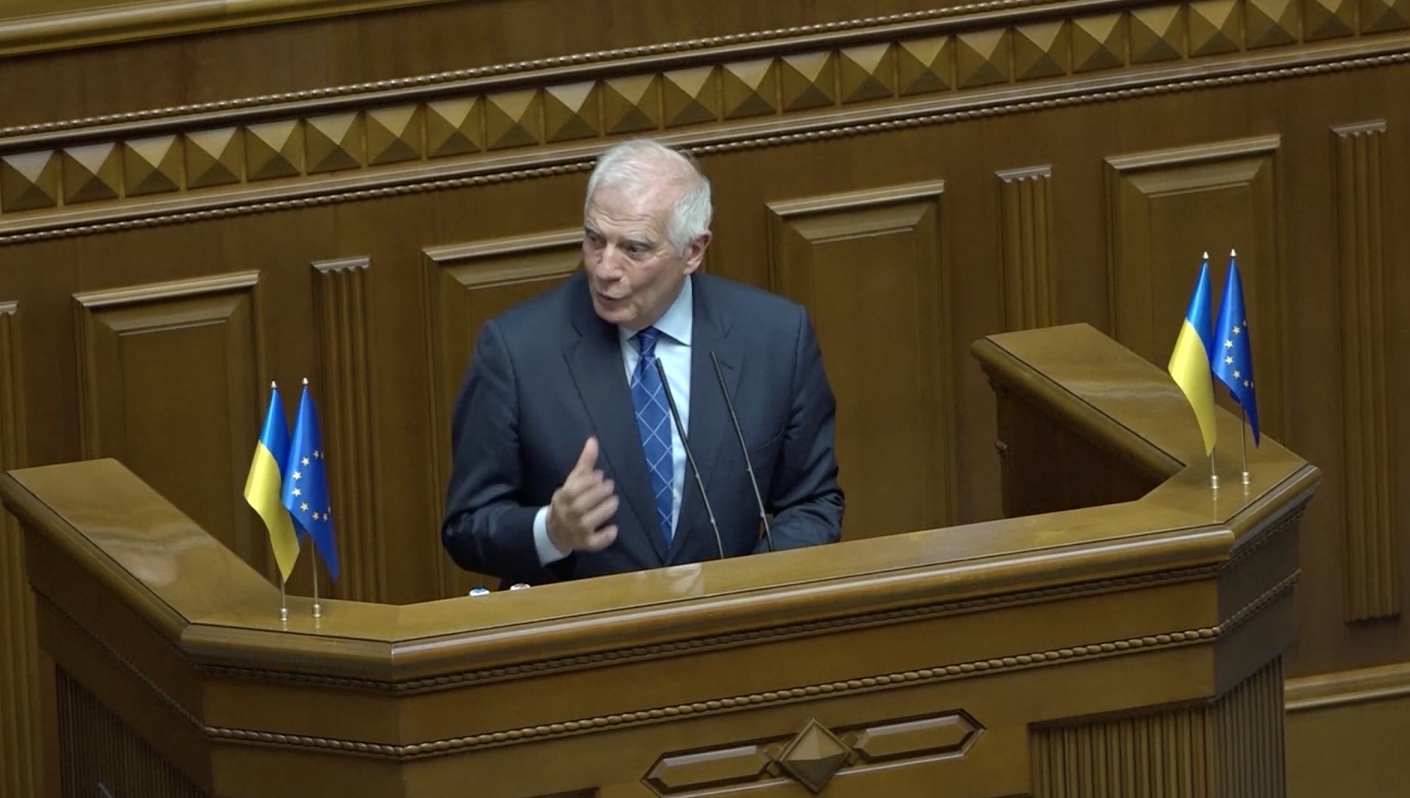
The real border today of Ukraine with Russia is not only in the battlefields. It is the political frontline between a world governed by law and freedom, and one where powerful people impose their will inside their society without respect for third countries. It is the frontline between democracy and authoritarian rule, nothing less.
A Ukraine that prevails against Russia’s war of annihilation would be a huge contribution to the security of Europe as a whole. The security of Ukraine is a huge contribution to the security of Europe as a whole. And the best security commitment that we can make for Ukraine is making Ukraine part of the European Union.
Russia's war has been an awakening moment for Europe.
The European Union is not a military alliance.
The European Union was built around the economy to defuse conflict with negotiations and compromise. And it worked. After the two terrible World Wars from the last century, we have had peace in Europe for nearly 80 years now. The old antagonism between the European old empires has vanished. The borders have become invisible.
That is also a reason why many Europeans mainly had forgotten that the world can be a terrifying place where force prevails. We [made] peace among us and believed that peace was a natural state of things and that is sadly not true.
In the world today, [geopolitics] are coming back and the struggle between big powers. Russia has not forgotten its own imperial illusion.
That is why your war has been an awakening moment for Europe.
Since 24 February 2022, it is not only a question of military and financial assistance but above all a revolution in our mindset.
Now, we need to change the complete institutional setting of the European Union to adapt it to this new geostrategic reality. It is no longer about making peace among us, it is to face the challenges in our borders.
Exactly two years ago, I was in the Donbas on 6 January [2022], when Russia was already building up its troops at the border. And I met with Prime Minister [Denys Shmyhal] and he asked me: “When they will invade us – because they will invade us - will you support us? Are you going to provide us with the arms to defend ourselves?”
I will never forget this question. "Are you going to help us?”
And at that time, I was not able to give a clear answer, because the European Union had never before provided military aid to a country at war.
But, when the invasion happened some weeks later, we responded in an unprecedented manner. So far, we have remained united, and provided €28 billion of military support and almost €90 billion overall.
And just last week, EU Member States – as you know - agreed on another €50 billion package to provide you with predictable financing and help pay salaries, pensions and provide public services.
But I know that more is needed.
We need a paradigm shift from supporting Ukraine for “as long as it takes” to committing ourselves to support Ukraine for “whatever it takes” to achieve victory. Not for “how long,” but for “whatever it takes.” It is not a matter of duration: the shorter, the better. And in order to be shorter, it has to be tougher.
We need to challenge the claims that Ukraine cannot win. I hear this defeatist message: “Why are you continuing to support Ukraine if Ukraine cannot win?” That is not true. Russia has lost many wars in its history.
And to the people who say that “Western support will not hold” -- they are wrong. They were wrong in 2022, and they remain wrong today.
Because it is Putin himself who has declared: “We want to end this conflict as soon as possible, but only on our terms.” And what are the terms? Denazification, demilitarisation, and dismantling. These three “De’s” are Putin’s recipe for Ukraine.
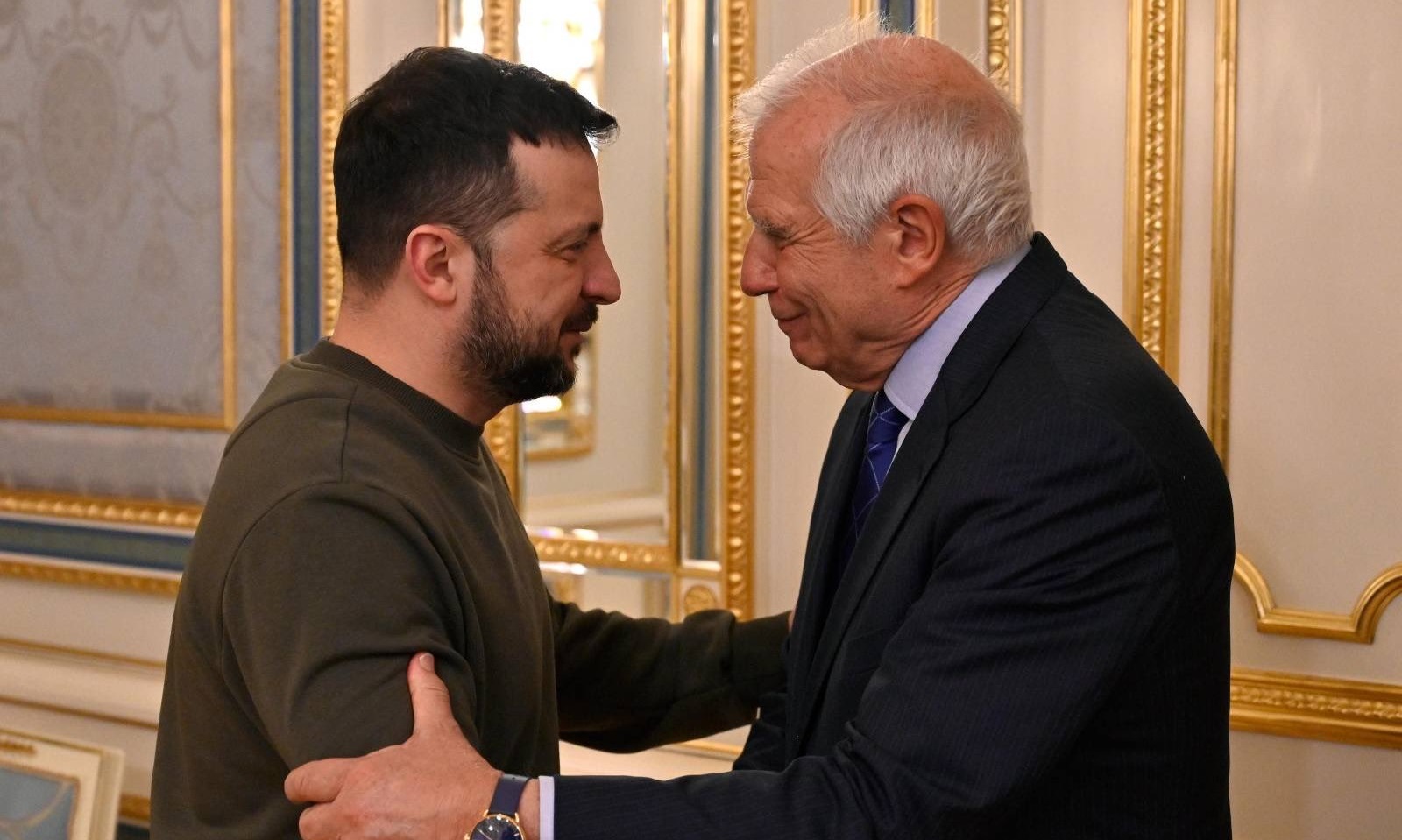
And these words mean only one thing: surrender.
He has been repeating that he does not negotiate in good faith, and has consistently failed to honor the agreements. And he has clearly said that his war is against the entire West.
So, instead of eying appeasement, we should remember the lessons we have learnt since 2022, avoid repeating mistakes and double down in areas where we saw success.
- Russia has achieved virtually no progress on the battlefield in 2023.
- Your armed forces successfully undermined Russia’s air dominance over the frontlines and broke the blockade of the Black Sea ports.
- You have forced Russia to withdraw most of its fleet from occupied Crimea and grain exports are reaching pre-war levels.
- The blockade against your exports of grain is finished. And it is finished, not thanks to agreements, but thanks to your fighting, [and also thanks to] the Solidarity Lanes which has been also an important support for your exports.
- And your people fought back with incredible inventiveness. Two years ago, Ukraine had seven factories to build military drones. Today, it has hundreds. I have visited two of them yesterday. What I saw is truly revolutionary. It is not because someone told me, because I saw it. How passionate young people with a lot of intelligence and creativity put their technical skills to work, transforming old factories into the birthplace of high-tech equipment. With €300 drones, you can destroy tanks.
Ukrainian creativity is incredible. When I see these factories working, people working, and young engineers creating new tools, [I know that] when this war is over, Ukraine will be among the world’s leading producers of new warfare tools.
At the same time, Russia is “cannibalizing” its own future. Putin has mobilized its entire economy, society, and political system for the war effort. Talents – when they can - leave the country and the demographic decline is deepening.
Sanctions are taking a heavy toll on Russia’s economy and on its war effort. They include almost 2,000 entities and individuals and we cut 60% of our pre-war trade with Russia. We finished our energy dependency with Russia. Now, we are prioritizing the fight against circumvention, monitoring trade flows, and blocking the reexport of goods that can be used on the battlefield.
We need a paradigm shift from supporting Ukraine for “as long as it takes” to committing ourselves to support Ukraine for “whatever it takes” to achieve victory.
However, we must recognize that they have adjusted to the war and their economy is more resilient than expected.
Most of all, we need an urgent renaissance for the European defense industry. I know that you have expected from us more military support, more ammunition, more of everything.
But let me say that in the last two years, much of our military support came from existing stockpiles of our armies. Replenishing the stocks today and simultaneously continuing to provide you with more weapons and ammunition is a serious challenge for our defense industry, which was diminishing due to peace.
But we have already reversed this trend. The production capacity of our industry has already increased by 40% since the beginning of the [war], and reaching 1.4 million ammunition capacity by the end of the year.
I know that on ammunition your needs are higher than that. But we are hard at work, and we will have donated more than 1 million rounds before the end of the year. Apart from that, the [European] industry is selling ammunition to Ukraine.
The complete figure of supplies is a sum of donations and exportations -- much more than the public opinion sometimes hears about.
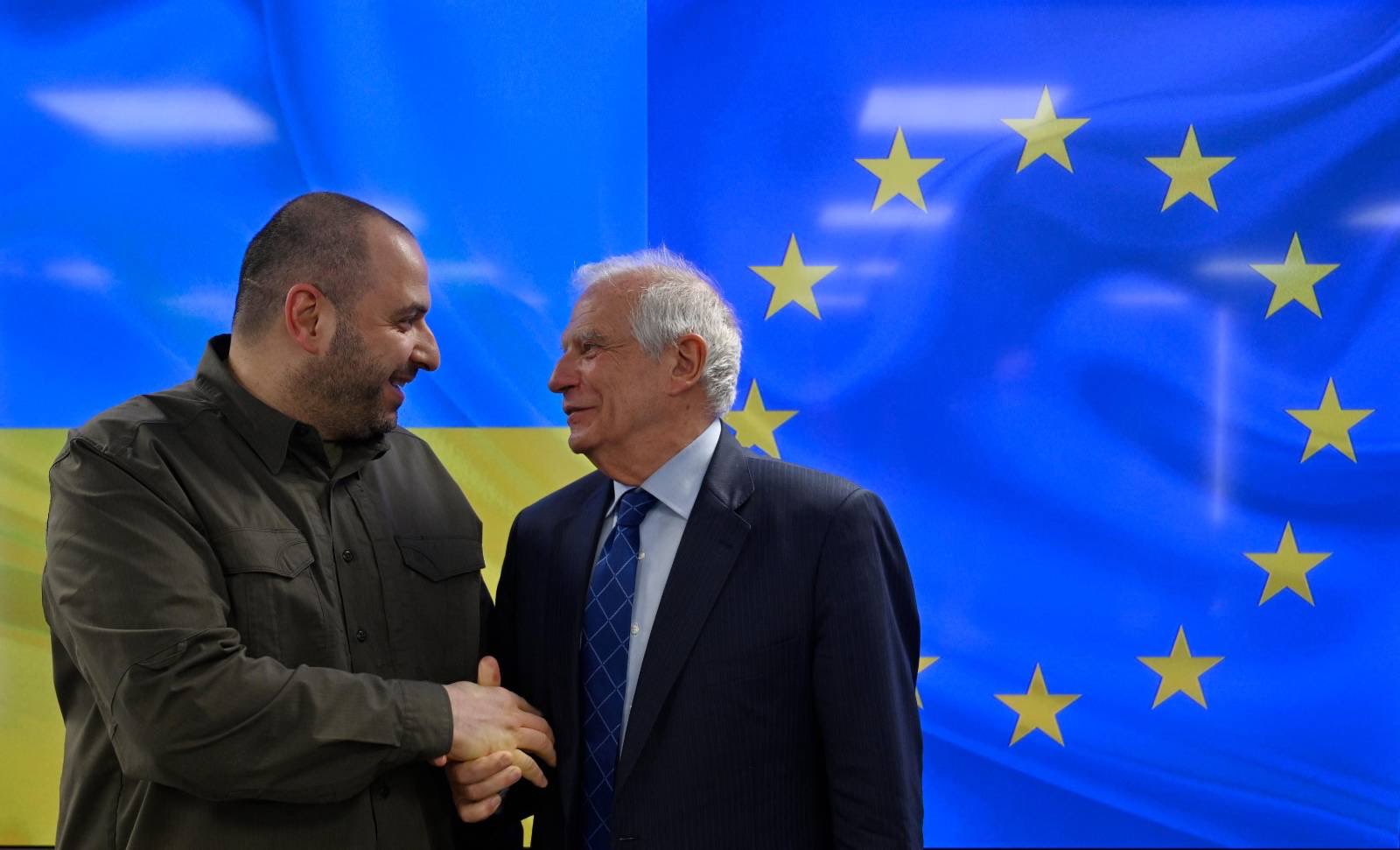
We talk only about donations – which is an important part because it is for free - but apart from donations, our industry is producing for you [an] equal amount of ammunition. I cannot tell you the precise figure because it is wartime. We are giving priority to Ukraine saying to our armed forces, “You can wait,” and saying to third-country clients “You can wait because you are not at war.”
We have reached an important amount of military support: €28 billion. And for this year – 2024 - Member States are planning more than €20 billion in military assistance, both bilaterally and through the European Union.
But there is another battle. The battle of brains. The battle of narratives all over the world. The perception of this war in the rest of the world will be decisive in order to isolate Putin and make our sanctions work.
People in Africa, in South America, in Southeast Asia, not only in the Western world, have to understand the root causes of this war - why this war is raging and why you are fighting.
Because for a large part of the world, the defining historical experience has been colonialism. Colonialism has been the story of people, and we were the colonial powers. However, paradoxically, many do not see Russia as an imperialist and colonialist power at all.
We must counter the Russian narrative. This war is not a matter of “The West against the Rest.” It is not the West against the rest of the world.
We must show it for what it is: Russia is the last colonial empire in Europe, an anachronism.
It is a war in defense of the sovereignty and territorial integrity of Ukraine and the principles of the United Nations Charter. That is why Ukraine’s Peace Formula is the only comprehensive framework for a just and sustainable peace.
To be able to counter the Russian anti-Western propaganda, we need to be consistent with our principles around the world and avoid double standards.
Frankly, I am not sure that we have always been, but we have to be.
This is why the European Union is so committed to putting an end to the tragedy suffered by the civilian population in Gaza and to secure the release of the hostages held by Hamas – which is another battle in which we are engaged. And finally, to work on a two-state solution, which the international community has been advocating for decades.
And it is also part of building a world that prevents “might make right,” where powerful countries change borders at will, and the weak fall prey to the strong. If Putin's strategy proves to be successful, it would embolden Russia and other autocracies to pursue their imperialist agendas against their neighbors.
We must show it for what it is: Russia is the last colonial empire in Europe, an anachronism. The Russian author Mikhail Shishkin wrote in his letter to an unknown Ukrainian: “My country is a country fallen out of time.”
Russia remains an imperialist power that is unable to disentangle itself from a colonial vision of its identity. Until this question of Russia's identity is solved, it will remain a threat to all its neighbors in Europe.
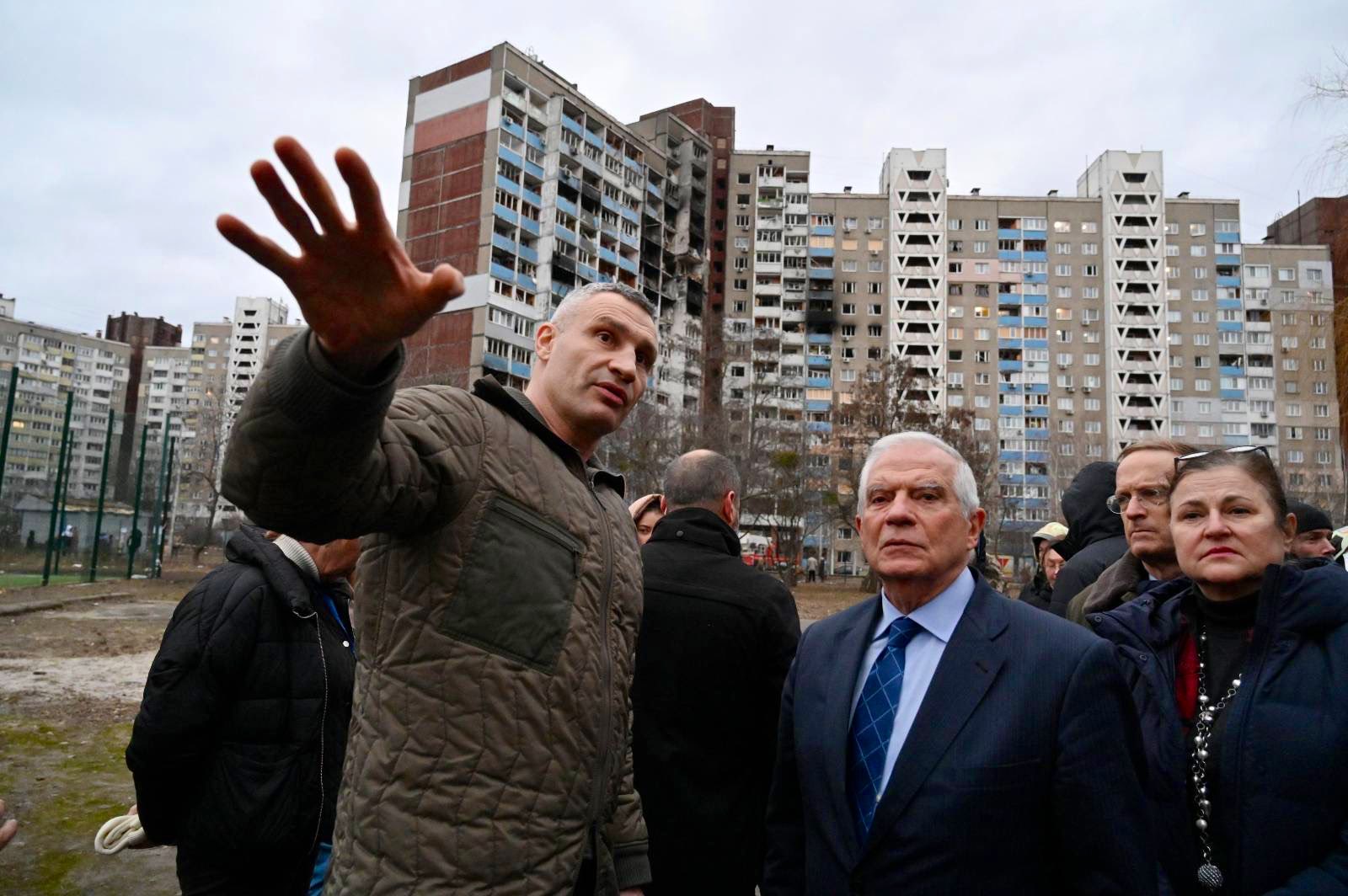
That is what Václav Havel said once: "Russia does not know where it begins and where it ends.” Such a country is a serious challenge to its neighbors. Putin recently confirmed that assessment when – in his cartoons propaganda for his next election – he said, “Russia’s borders don’t end”. As long as Russia has not resolved this issue, its political system will remain what it is: an authoritarian, nationalist, and violent regime.
Nobody knows that better than you, Ukrainians. For centuries, you have been on the receiving end of Russia’s imperialism, relegated to be considered as “little Russians” - a pure colonialist way of speaking - starved at the Holodomor or deported to Siberia. And Russian imperialism remains a crude reality. Putin is obsessed with his fantasies about “historic Russian lands."
That is why we once again see the deportations in occupied Ukraine. We see the repression of your language and the terrible forced adoptions of thousands of Ukrainian children to be “russified” and make them forget about their Ukrainian roots, their parents, and their families.
But you are no longer the vassal of any empire; you are not an object but a subject. Ukrainians are the masters of their own destiny. Through history, you have repeatedly shown your will to be a free country. And as in history, the next chapter will be written together.
This is why I am coming to Ukraine as a member of the European Union.
Dear members of the Parliament,
We have decided that your future is in the European Union. That is what you want. That is what the European Union’s leaders have agreed to last December. And this decision to be [made into] reality.
These cannot be empty words. This has to be a serious commitment that has to be implemented, but you have to play your part. You too have to make a lot of effort.
You make the European choice over and over again. And I understand it very well. When I was a young Spaniard in the darkness of dictatorship, Europe was for me the beacon of political freedom, economic prosperity, and social enrichment. I wanted to be in the European Union, [like] you.
Today, I see your European choice among political forces, civil society, and businesses. But you have to preserve it, and you have to keep unity and consensus. This will be essential to your path to membership; it will require a lot of effort and a lot of compromises by you, members of the Rada, by your government, but also by citizens, industry, and civil society. It will require a deep and comprehensive modernization of your governance, your economy, and your society.
The European Union with Ukraine will be a different Union. And Ukraine will be a different Ukraine inside the European Union. It will require effort; you have to be prepared not to spare them.
We will be supporting you along the way. But as any other candidate country, you have to implement and enforce all current European Union rules.
Corruption was the weak spot of Ukraine’s society. It has cost you a major gap in your development for the last 30 years. President Zelenskyy was elected with a mandate to fight corruption. There has been recent progress in law and enforcement and your better position [yourselves] in the Transparency International Annual Corruption Perceptions Index – which is the measure of how a country faces the challenges of corruption - is clearly improving. It is clearly positive. It should encourage you, but more has to be done.
Corruption significantly undermines the efficiency of the war effort and the efficiency of reconstruction, but it also undermines the goodwill and support you are getting from societies across the European Union.
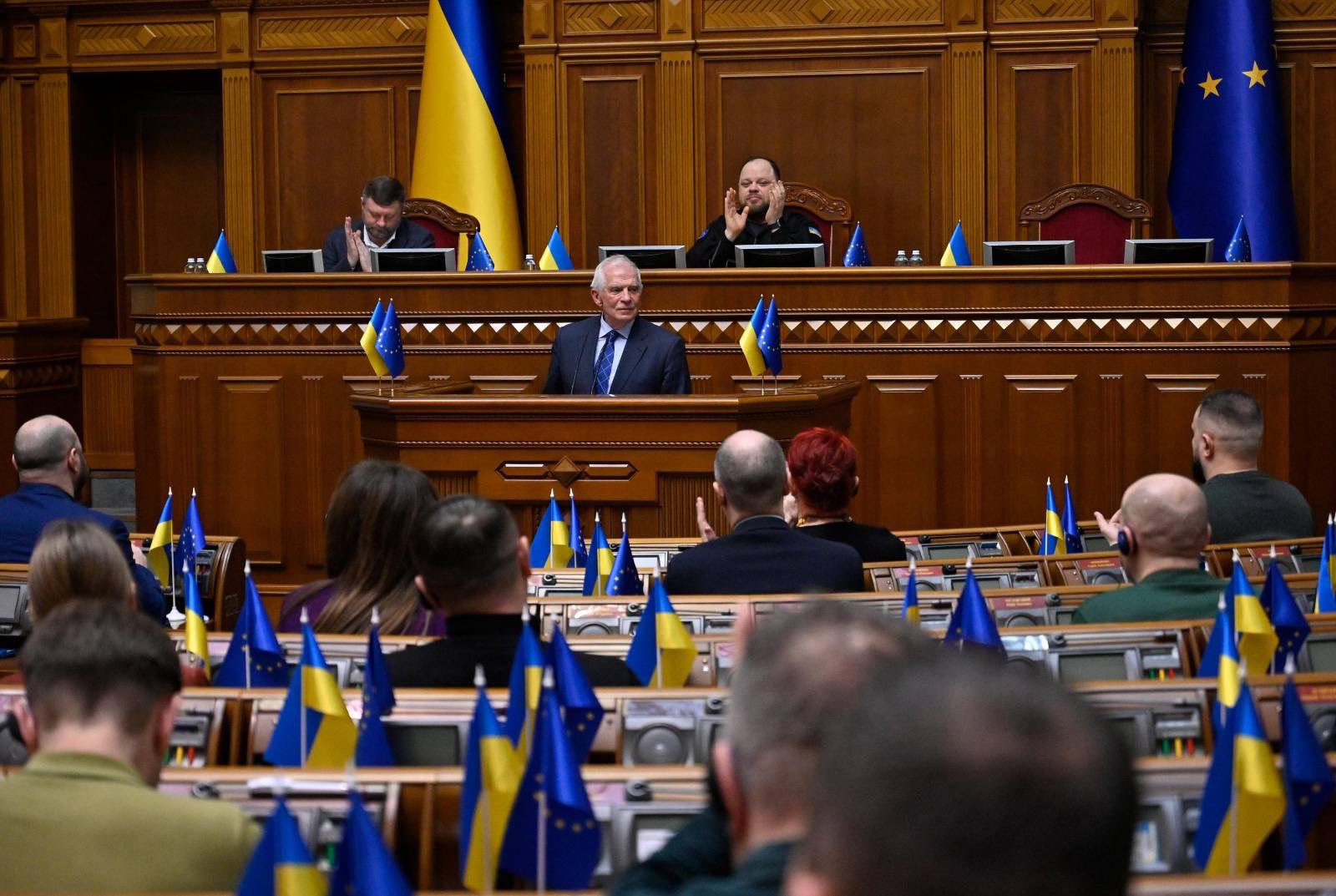
This process of accession will also have to be accompanied in the coming years by a major reconstruction effort. These two processes have to go hand in hand. When you rebuild your homes, roads, bridges, and ports, they must be done at European standards, such as energy efficiency.
But more important than the physical infrastructures are the invisible ones that sustain democracies, the rule of law, and political plurality. The separation of powers, inclusive governance, respect for human rights, social cohesion, and equality are the invisible infrastructures that make a country free and united. It is at the core of democratic societies, and it is more difficult to build and maintain than roads, bridges, and ports – but it is the backbone of healthy societies.
I know this is particularly difficult to achieve in a country at war. There is always a strong and understandable temptation to centralize power and limit freedom of expression when there is a war. However, in times of war, checks and balances are more important than ever: respect for the rule of law and fostering democratic dialogue between government and opposition will add to your resilience and the capacity of the country to win the war.
But more important than the physical infrastructures are the invisible ones that sustain democracies, the rule of law, and political plurality.
Dear Members of the Rada, once again this is not a partisan message.
Being a democratic and inclusive society is your greatest advantage in the face of Putin's dictatorship. You are facing a dictator regime, and you have to face it showing that you are a pluralist state and a democratic society.
I know that there are popular Ukrainian sayings that are “for every two Ukrainians, there are three hetmans” [Cossack leaders]. In Spain, we say that for every four Spanish who have dinner together, they find five political bodies. So, it is not difficult to understand that sometimes, pluralism creates structures that are difficult to manage.
But plurality of opinion is typical of European societies; it is our strength. And this is something that Putin will never understand. He will never understand, but it is important that we Europeans make this our absolute difference between democratic and authoritarian regimes.
And it is here, in the Parliament. I have been President of the European Parliament, I know what a Parliament means. This Rada needs to be the forum where this plurality - this strength - is being harvested. It needs to be the forum for discussion for reforms. It needs to be transparent, and it needs to make sure that all groups in society are represented.
We know well that our own security is being defended by you on the Eastern borders of Europe. And when we say “For our freedom and yours,” it means that we owe you a debt. A debt that will not be paid in casualties and young people being killed but it has to be paid by not succumbing to fatigue.
The only ones who are entitled to be tired of this war are you – and you are not.
The commitment and motivation of the people win wars. How many wars have been won by the powerless from the material point of view? From Afghanistan to Spain against Napoleon; it is motivation, it is the understanding of why and for [what] you are fighting for which makes you win.
I do not see you succumbing to fatigue, and as far as you do not, we will not, either.
Thank you.
Related:
- Latvian president urges allies to support Ukraine until full victory over Russian imperialism
- UK Minister declares end of “peace dividend” era in historic speech
- Russia’s war: an attack on Europe
- 9 reasons negotiations with Russia are utterly pointless
- Ex-Minister Zagorodnyuk: Ukraine can defeat Russia, but West must commit to total victory

